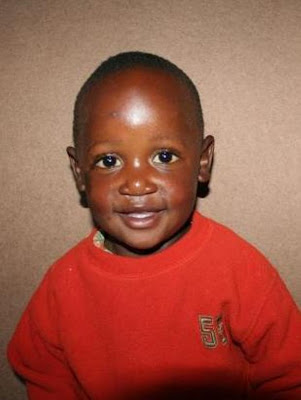WHY NELSON CHAMISA HAS MET GENERAL CHIWENGA THREE TIMES SINCE COMING BACK FROM UK
Why is it that, after Nelson Chamisa came back from the United Kingdom, he has not repeated his demands about the printing of ballot papers? Why has he not uttered a single word about this, even though this was his song throughout the run-up to his trip to the UK and even during his interviews there?
The answer lies in meetings he has had with Vice President Chiwenga after that trip.
The meetings, according to informed sources, have come about as a result of the realisation that goalposts have shifted dramatically since Mugabe left office, something the MDC Alliance had not fully appreciated until they met with British officials in London.
A clear message was given to Chamisa's delegation, apparently, that the British government was not going to make the mistake of the past, where they were seen to prejudge the election and the process leading up to it by making procedural demands.
This time, the British are going to stand by the universal condition that the elections be seen to be free and fair. The standards for this condition to be met are well known, the MDC delegation was told. And they are accepted by the African Union, European Union and other bodies.
The government of President Emmerson Mnangagwa has, at this point, not actually taken any action that could be seen as jeopardising these standards. They have not even spoken in a manner that indicates they will jeopardise the election. It would be interference and could be counter-productive to the new spirit for Britain to take the route of Senators Flake, Coons and Cory Booker in the USA.
(The senators issued a list of specific, procedural demands that were basically copied from the talking points Tendai Biti and Nelson Chamisa took to Congress in January this year.)
The USA has taken the lead from Britain on Zimbabwe in the past and there is no reason to believe that this will change.
Britain is not going to demand that the Zimbabwe government do anything apart from conducting free, fair and credible elections, the MDC Alliance was informed. They were further informed that the current president has said this is what he will do and so far, he has not done anything that says he is lying.
Britain, therefore, is not going to treat him and his government like liars when there is no evidence that this is fact.
Nelson Chamisa, therefore, has apparently now started a process of negotiating for a some sort of Government of National Concentration after the elections.
He has informed Vice President Chiwenga that he thinks ZANU PF will definitely win the presidential elections this year. Parliamentary seats are proving a bit more difficult to predict.
According to sources within ZANU PF, the government's reading is that Chamisa wants a repeat of some sort of GNU primarily to strengthen his image and governance credentials with an eye to future elections.
At the first meeting, VP Chiwenga told Mr Chamisa that he has no mandate to speak about the possibility of a multi-party government because the thought has not crossed the mind of the current government at all.
Chamisa was asked to come back with broad thoughts and proposals around how he saw his Alliance's ideas panning out.
The second meeting saw Chamisa bringing a fleshed out proposal of how power could be shared.
Specifically, Chamisa is said to have stated, "After the elections, we see a de facto one-party state, where all attention will concentrated on economic recovery with all parties in the country working as one to achieve this." The proposal is to have this done within a government that will accommodate the opposition and the ruling party.
VP Chiwenga is reported to have responded that the one-party state was a Mugabe agenda that the current government does not subscribe to.
This second meeting resulted in VP Chiwenga asking Mr Chamisa whether his proposed agenda would include every single member of the MDC Alliance. The vice-president made it clear that the majority of the parties in the Alliance were one-man bands with no broad support and therefore, no constituency to represent. The VP also told Chamisa this realisation was the main reason the president shelved plans to hold an indaba with all the political parties in the country - the barrier to entry for political parties simply too low, anyone can simply say they are party and register with the authorities. That was all that was needed for them to be recognised as such.
The third meeting reportedly saw Chamisa putting forward the position that the principal party in the alliance, MDC-T, was the party that would make the decisions which would be binding to everyone else.
A response is still pending from the third meeting and it is not clear at all right now if there is going to be another meeting.




Comments
Post a Comment
Comments from Anonymous Users will NOT be published